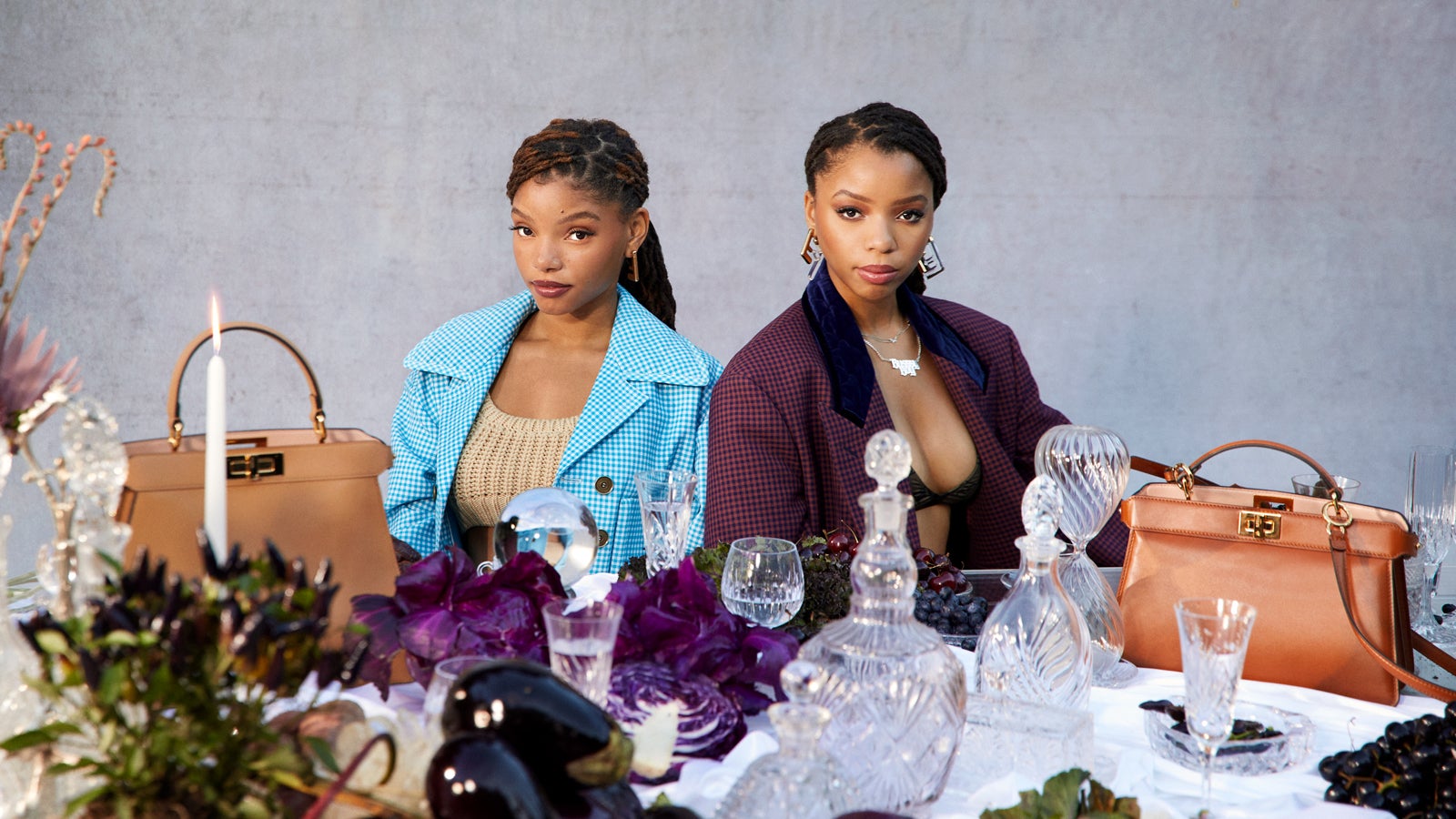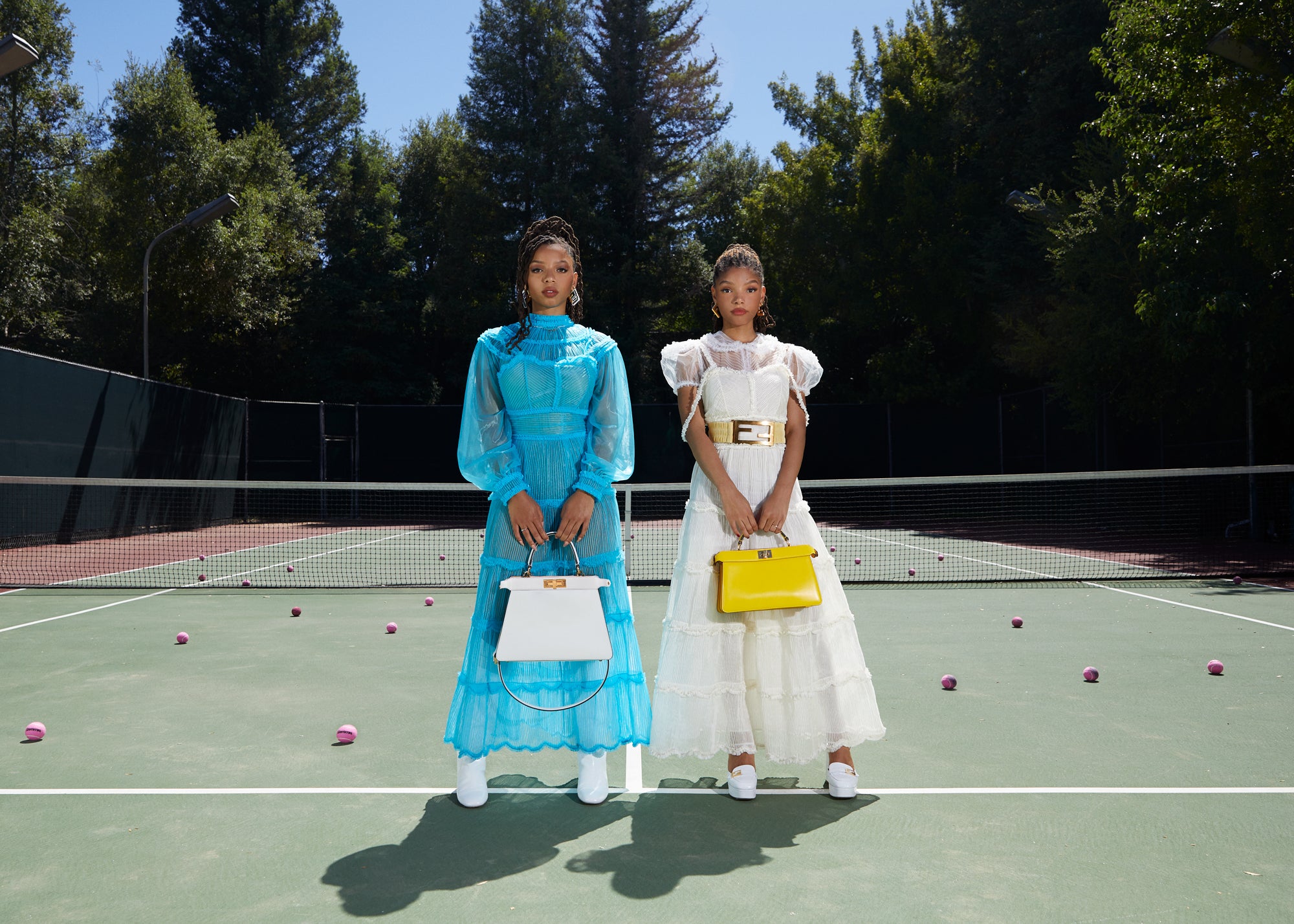
If anyone can teach you how to utilize your home during a pandemic, the rising sister duo Chloe x Halle are the perfect professors.
Though the last few months for entertainers have been a challenge due to most relying on appearances for exposure, Chloe x Halle have utilized their tennis court to curate a number of digital experiences. From award show performances to magazine covers, the sisters have become experts in creating content in the midst of a pandemic and stay-at-home orders. So, it wasn’t a surprise when FENDI announced the brand’s latest collaborators were none other than Chloe x Halle. “Since we can remember, we have always been huge fans of the FENDI brand,” exclaimed the sisters. “FENDI is the perfect mixture of classy and sexy, and we were more than happy to be a part of this project.”

For the first time ever, the luxury fashion house has given complete creative control to the sisters with the creative team of their choice. Shot on their infamous tennis court, the video and campaign images embodies the creativity and modern elegance of Chole X Halle.
“This video was inspired by a song off of our new album called “Busy Boy.” With the playful lyrics, we wanted to mix dreamy scenery to compliment the song and the playfulness of the peekaboo bag,” said the sisters. Known collaborator and Art Director Andrew Makadsi’s ideas met the vision of videographer Derek Milton. Together they teamed up with photographer Julian Dakdouk and stylist Zerina Akers to complete the project. The duo exclaimed, “filming content during quarantine is so much fun because it allows you to be extra creative, and in this case we got to shoot every scene from home in our backyard.”

Presented during the FENDI Fall/Winter 2020-21 Collection in February, the new Peekaboo bag features n accordion-frame shape, to open in to what is described as a “deep smile” featuring inside interchangeable pockets which can be personalized with one’s initials. “What we love about the Peekaboo is how universal it is, we can literally wear it with anything,” said the sisters. As Chole x Halle have reveled in their success, they both are equally conscious about the difficult time we’re in. “Definitely try to remain hopeful and positive during these times. With everything going on in the world, it’s so easy to get down and give in to the uncertainty of the future. But this year 2020 is not over yet, and through the darkest times, come the most beautiful sunrises,” they concluded.
The #MeAndMyPeekaboo campaign is set to launch globally at the end of July, while the new Peekaboo bag will hit stores this August. For more information visit www.fendi.com.